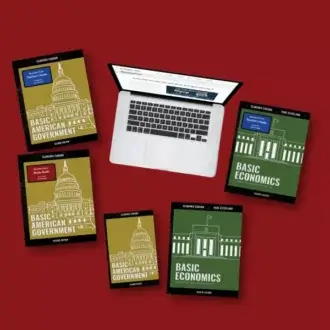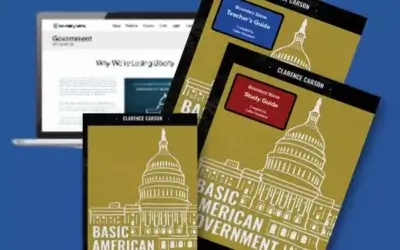Moral action requires choice. How can we say that one action is virtuous and another immoral, if the person acting has no choice in the matter? In an earlier post I argued along with Frederic Bastiat that liberty is the environment in which moral character is developed. Recognizing that this proposition must square with the fact that we live in a sinful world, I would like to further explore the purpose of government. Because of sin’s reality it is most certainly not government’s role to plan and control all of life since no one is fit for the task.
As Bastiat argued in his Economic Harmonies, it is impossible to deny the presence of evil. But, when people are free, they are also responsible to bear the consequences of their actions. In many cases, those consequences, good and bad, fall upon the one who acts. Behavior ranging from slothfulness to debauchery produces negative consequences for the person engaged in the activity. As the apostle Paul wrote, “Do not be deceived, God is not mocked; for whatever a man sows, that he will also reap.”[1] This reality establishes boundaries to human behavior. When a person acts foolishly or immorally, it does result in hardship and suffering. This suffering is a warning from God that he should change his behavior. Likewise, prosperity and success generally serve as signals that one’s actions please our Lord. However, these signals only work so long as people are unable to impose the costs of their actions on others. Herein is the problem.
It is not always possible to contain all the negative consequences of sin. Indeed, some actions plainly inflict suffering on others as in the cases of murder, rape, and theft, while other evil actions only indirectly affect others. If human flourishing is to result, direct transgressions need to be limited by the infliction of punishment on perpetrators. In addition, to the extent possible the perpetrator ought to be forced to make restitution. However, it would be impossible to effectively limit indirect suffering by governmental means. Herein is a problem. For this reason, the existence of material success is not necessarily the sign of moral living, and the occurrence of poverty is not necessarily the sign immorality. To discern the issues of morality, we have to look more closely at the institutional structures and the human action that resulted in the prosperity or the poverty to make that assessment. The problem can and will be compounded if government power is misused.
If governmental institutions are constructed in a way that allows people to transfer the costs of their behavior, then immorality can spread as the less principled people among us seek to impose the costs of their immorality upon others. This fact gives us a framework for the purpose of government. That purpose is limited. As the apostle Paul said in Romans 13, the aim of government is to punish wrongdoers who directly transgress against others in an effort to limit the infliction of pain. It cannot, however, right all wrongs or eliminate all suffering. In fact, the effort to do so might well result in institutional structures that allow the greater part of suffering to be shifted onto those who were not responsible for the action.
For instance, the poor do suffer. But why do they suffer? There are many reasons. If government aimed to eliminate all poverty through programs of income redistribution it would inflict the negative consequences of sloth, negligence, improvidence, and dissipation on those who had no hand in the imprudence. Essentially, it says to folly that you may continue on your way unhindered by God’s law because you are relieved of having to bear the hardship promoted by you own behavior. To be sure, poverty comes upon people for more reasons than these, but the alleviation of this suffering is best left in private hands by private choice by people who can assess firsthand the reason for the hardship.
[1] Galatians 6:7







0 Comments